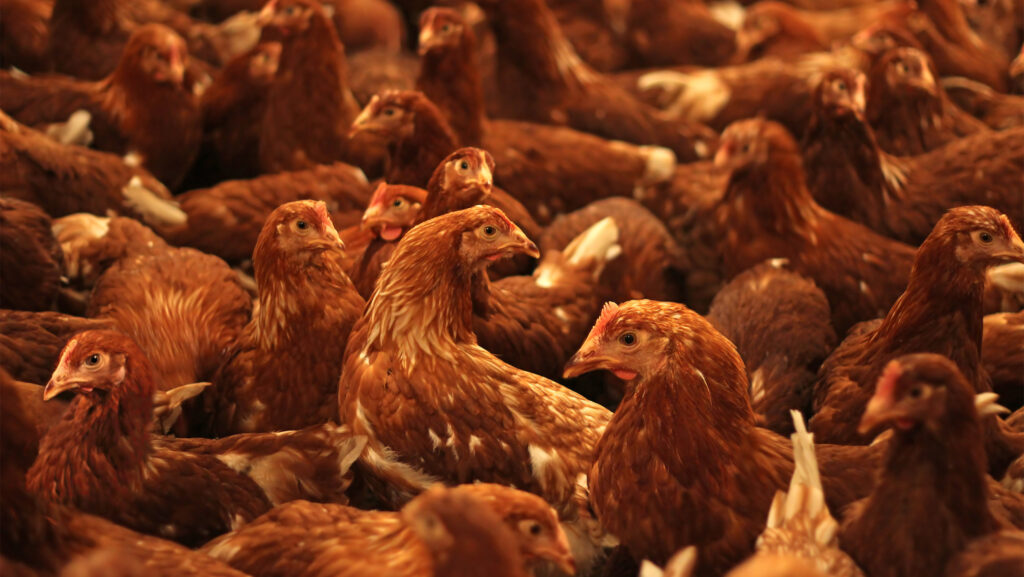Bird flu housing order to take effect in various regions
 © Adobe Stock
© Adobe Stock Free-range poultry will have to be kept indoors in northern, central and eastern parts of England from 12.01am on Thursday 30 October, following Defra’s decision to introduce a regional housing order in response to the ongoing threat of avian influenza.
Affected counties include: Cheshire, Cumbria, Derbyshire, Durham, East Riding of Yorkshire, Greater Manchester, Lancashire, Leicestershire, Lincolnshire, Merseyside, Norfolk, North Yorkshire, Northumberland, Nottinghamshire, Rutland, Shropshire, South Yorkshire, Staffordshire, Suffolk, Tyne & Wear, and West Yorkshire.
It applies to flocks of 50 birds or more.
See also: Wild bird tracking data aims to to help manage avian influenza
Latest notifications from the Animal and Plant Health Agency (Apha) point to a recent spike in bird flu cases on commercial poultry farms.
These include on a 68,000 free-range layer unit near Bedale in Yorkshire, on a 32,000 free-range layer unit near Penrith in Cumbria (the second outbreak in the area since 18 October), and on a 33,000 fattening turkey site near Lakenheath in Suffolk.
UK chief veterinary officer Christine Middlemiss said: “The risk of avian flu is seasonally very high which is why we are introducing these measures to help protect livelihoods and animal welfare.
“Prompt action to try and prevent the further spread of disease is now necessary and I would urge bird keepers to comply with the new housing measures.”
Reaction
The British Free Range Egg Producers Association (Bfrepa) has welcomed the decision, but believes it should be extended across the whole of England, Wales, and Scotland.
Gary Ford, Bfrepa head of strategy, said: “This remains a really testing and extremely worrying time for free-range egg producers across the whole of the UK.
“A consistent, UK-wide housing order would not only offer stronger protection for free-range birds, but also provide clarity and fairness for farmers, wherever they are based.
“Producers are all facing similar risks, and a joined-up approach would give the sector much-needed reassurance and confidence at an extremely difficult time, and so early in the bird flu season.”
Wild birds situation
The increase in bird flu cases coincides with a sharp rise in the number of wild birds found to be carrying the disease.
According to Apha figures, last week alone some 30 of the 82 wild birds found dead in GB tested positive for avian influenza, equivalent to 36%.
This was up from 7% in the whole of September.
Producers are urged to report any suspicions of avian influenza as soon as possible – not least because any government compensation is based on the number of birds still alive at time of confirmation of the disease, so delay can affect any payout.
